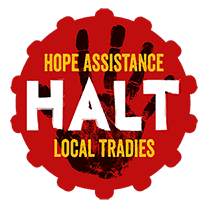HALT’s response to the major themes from the Royal Commissions into Victorian Mental Health Services.
“The narrative around mental health seems to repeat the same message ‘Don’t be afraid to ask for help.’ The problem comes when you ask, there doesn’t appear to be any answer.‘’
The Mental Health system operates in crisis. HALT recognises that work we do in linking people to services is limited by the current system, and that over-subscribed medical and mental health services makes it harder for individuals to access support when they need it most. HALT supports the Commission’s recommendations for increased investment in mental health services and increased options for individuals and families seeking support at every stage of life.
Increased focus on the promotion of good mental health and wellbeing is required – HALT is well aligned to deliver positive wellbeing and health promotion and is well positioned to encourage conversations that reinforce the need for self-care, work/life balance and wellbeing strategies as evidenced by our partnership with the Royal Melbourne Hospital & Five Ways to Wellbeing program.
Communities/places do not adequately support good mental health and wellbeing. There is a predominant focus on the ‘mental health system’ and identification that system leaders need to better support these places and settings to support good mental health and wellbeing. HALT’s innovative approach to on-site mental health promotion supports organisations to build positive culture and reinforces that mental wellbeing is as important on-site as physical health and should be included in occupational Health and Safety which has a strong prevention focus.
Younger people are adversely affected – There is a strong case for broad investment into the mental health and wellbeing of young people. HALT is responsive to this cohort, and is invested and committed to equipping young people with the skills to ask for help and seek others to access help. HALT has developed a strong relationship with TAFEs, including Melbourne Polytechnic, Victoria University, Chisholm Institute, The Gordon Institute and Kangan Institute that support young people to be informed of the help and support that is available.
The focus on personal recovery needs to be strengthened. This is an area that HALT excels in. Lived experience and shared stories of recovery are key to HALT presentations, and act as a powerful voice of hope to participants. HALT presenters speak to their experiences of using established services such as Lifeline & Mensline and the protective and preventive measures individuals can take to improve their mental health.
Good mental health and wellbeing are not given priority & the workforce is under-resourced. There are serious shortages in funding mental health initiatives like HALT, which is more pronounced in rural and regional areas and is exacerbated by inadequate partnering between state and federal governments.
HALT understands that there is no simple answer or ‘single door’ to recovery and a multi-faceted approach is necessary that includes housing, employment and social engagement and HALT is encouraged by the commitment to act by the Victorian Government to implement the commission’s recommendations.
HALT looks to all levels of Government to show its commitment to implementing the Commission’s recommendations and prioritising good mental health outcomes & positive health promotion by significant investment in the sector.


